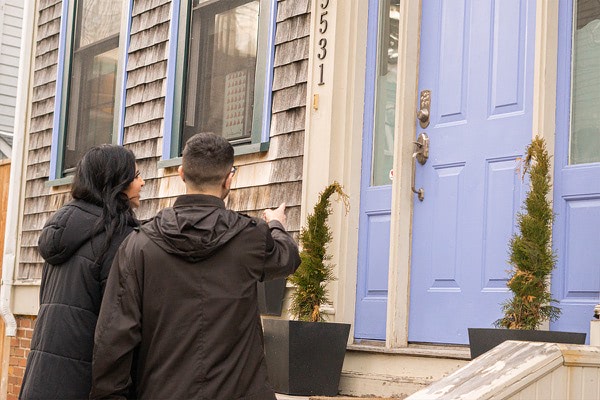New home buyer in 2024? In this post, we examine 5 important tips to follow when purchasing a house this year.

Are gifted down payments a good option for you?
Gifted down payments are becoming more popular as the costs of living and housing prices continue to rise. Often, parents want to help their children become home owners, and they do so by providing a financial boost. If you’re thinking about accepting or offering a gifted down payment, it’s important to take some time to consider what that looks like for you. Here’s everything you need to know about gifted down payments.
What is a gifted down payment?
A gifted down payment is pretty self-explanatory. Basically, gifted down payments are ways to help home buyers cover the down payment required for their mortgage if they have trouble coming up with the funds themselves. The donor will grant the buyer a sum of money to be used as the down payment, whether that’s the full or partial amount. The donor must be an immediate family member of the buyer, such as a parent or sibling. Gifted down payments can be a big help to home buyers, especially first-time buyers, who are struggling to make up the money for the down payment with today’s market conditions and rising housing prices. In an ideal world, the buyer puts forward a 20 per cent down payment. A gift can help buyers fulfill this amount. It’s important to remember a gifted down payment is not a loan. This means the donor can have no expectations of repayment.
What’s required from you and the donor?
Gifted down payments aren’t as simple as they might seem. From both the buyer and donor end, there are lots of requirements and things to consider that might impact the gift. Lenders can be picky about gifted down payments, so it’s important to keep the following things in mind.
Donor letter
The donor of the gifted down payment must provide a letter to the lender stating the donor is providing the money as a gift. They must acknowledge their relationship with the borrower, the money amount they are gifting, and provide their own contact information. This puts the commitment in writing for the lender and reassures them there will, in fact, be a down payment.
Proof of funding source
The lender might want to have a look at the donor’s proof of funds when they provide the down payment. This is quite standard, as lenders need to ensure the money comes from a legitimate source and isn’t the result of money laundering, for example. It also proves the money comes from the person listed as the donor.
Proof of transfer
Once the money has been officially gifted and put in your account, your lender will want to see proof of this transaction between you and your donor. This proves where the money came from, the amount, and that it’s available for use.
Borrower’s credit history
Lenders will closely examine your credit history when they look at your mortgage application. Even if you have a gifted down payment, a poor credit score might make a lender reject you as a borrower. After all, you are also responsible for closing costs and mortgage payments, and the down payment is only part of the finances. You still must be creditworthy. If a donor is taking over the down payment, be sure the rest of your application, including your credit score, is strong.
Borrower’s ability to pay closing costs
Closing costs cannot be covered by gifted down payments. Lenders need to know you are not completely relying on someone else and you have the ability to handle the mortgage they are going to give you. Closing costs are the minimum a lender needs to see you can handle a mortgage and the costs that come with homeownership.
Pros and cons
Pro: Faster route to homeownership
Saving for a down payment can be a lengthy process. With a gifted down payment, buyers can bypass much of this saving process and achieve homeownership quicker. Instead of budgeting for years to put together a down payment as many Canadians do, you now have the freedom to save for other aspects of your home, like closing costs, utilities, and furniture. This can relieve a lot of stress and will save you time.
Pro: Bigger budget
If you are combining your own savings with a gifted down payment, you might find you now have a larger down payment to contribute. This can give you a bigger budget and open up your options for housing. For example, if you were saving for a $600,000 home and aiming to put forward a 10 per cent down payment of $60,000, but then you received a gift of another $60,000, this opens up your choices. You could either contribute a 20 per cent down payment for a home in the same price range and avoid CMHC insurance, or you could raise your budget and maintain a 10 per cent down payment.
Con: Potential risk for donor
Gifted down payments are certainly nice gestures, but they put the donor at risk. The gifter must be able to afford whatever contribution they are making, because this has to be a gift, not a loan, so there will be no form of payback. If parents want to provide this money for their children, they need to think about their own future financial plans to ensure they can live comfortably after giving this money away.
Con: Buyer may become house poor
Finally, relying on gifted down payments puts the buyer at risk of becoming house poor in the future. Being house poor means the majority of your income has to be used for housing costs like mortgage payments, utilities, and insurance. If you use a gifted down payment to buy a home beyond your means, you might find the future costs of paying for that home are too much. Don’t get carried away when looking for homes with a gifted down payment.
While gifted down payments can certainly provide a helpful boost to a borrower, it’s very important to understand the rules and responsibilities involved. Whether you are offering or accepting this type of gift, it comes with several guidelines and strings attached. Make sure you’re clear on how these products work before introducing one into your life.
If you have any questions about your mortgage, get in touch with us at Clinton Wilkins Mortgage Team! You can call us at (902) 482-2770 or contact us here.


